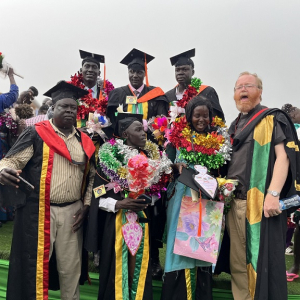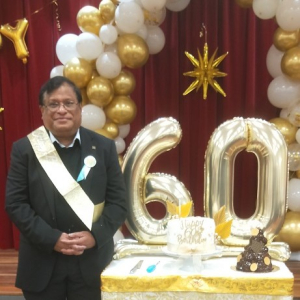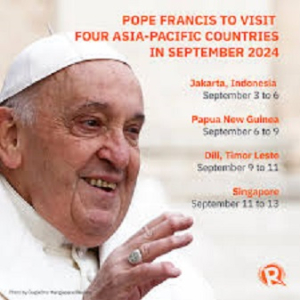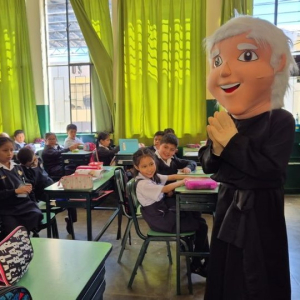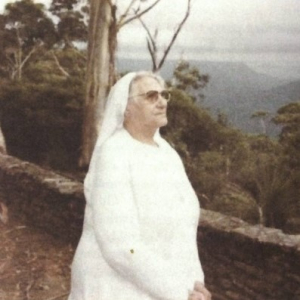Peter MALONE
Fly Me to the Moon
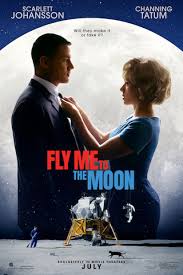
FLY ME TO THE MOON
US, 2024, 132 minutes, Colour.
Scarlett Johansson, Channing Tatum, Woody Harrelson, Ray Romano, Jim Rash, Anna Garcia, Victor Garber, Donald Elise Watkins, Noah Robbins..
Directed by Greg Berlanti.
On the one hand, this is an old-style romantic comedy, memories of the 1930s and what was called screwball comedy. On the other hand, the setting is 1969, NASA, preparations for the moon landing, its achievement. And they come together entertainingly here.
For those of those who remember 1969, it is a welcome reminder of the atmosphere of the time, the heightened excitement as July neared, the actual landing, “one small step…”, The sense of achievement, something of a balance to the turmoil of the Vietnam war. Audiences for whom this is something of remote history, it is an opportunity to learn something of the atmosphere of the times.
In the 21st-century, we live in an age of conspiracy theories, many of them outlandish. However, even back then , there were conspiracy theories that the moon landing did not happen, that everything was manufactured on the studio lot – and the film later re-creating this speculation, Capricorn One.
The screenplay here amusingly incorporates the conspiracy theory of the fabrication of the moon landing along with the real thing.
Scarlet Johansson is definitely the star of this romantic comedy, Kelly Jones, one of her most forceful performances, something of a con artist, skilful in promotion and advertising (which we see in the opening sequences and are somewhat taken aback), then recruited by a mysterious secret agent who claims he has a line directly to President Nixon, and played with smilingly smug complacency by Woody Harrelson. Her mission is to make the moon landing and its preparations much better known to the American public.
What follows is an extraordinary look at American brashness, self-confidence, promotion of any product by any means possible – and here, on radio, television, imprint, rallies, breakfast cereals, omega watches, soft drinks are all incorporated into the promotion as well as, more seriously, some extraordinary lobbying of senators who are inclined to cut off funds for NASA.
Kelly is able to rise to every occasion, walking over most opposition, changing her accent at a moments notice, flirtatious one minute and religiously devout the next!
The other part of the romance is Channing Tatum, rather more serious, a touch sombre, a former Korean pilot, the launcher chief for the Moon project, very conscientious about his work – though the screenplay is a bit satirical about him and his style. When, by chance, at a diner, he sees Kelly, he is infatuated – but soon disillusioned when he discovers her mission, how she operates, the manipulation of truth and lies. But, he does get caught up in the melodrama, often unwillingly.
While the film is very strong in its presentation of the NASA work, the visuals of the plant, the control room…, It entertains the audience with the whole setting up of the fake landing, the studio, moon rocks and dust, space vehicles and gear, all rehearsals about space walking… And extraordinarily prissy director.
A wandering NASA black cat is key to the events – especially for the fake landing.
So, on the one hand, romance and comedy. On the other, memories of when America was greater than it is now…
- The title, the song? Romantic comedy? Screwball comedy? Preparations, achievement of the moon landing, 1969?
- A piece of Americana, the advertising and promotion world, science and technology work and space, politics, agents, cover?
- Cape Canaveral, 1969, the reconstruction, the tallest single story building, interiors, the plant, the layout, the control room at the desks, the comparison with the ordinary, motels, diners, the wharf, and the set for the reconstruction for the moon landing?
- The musical score, echoes of the 1960s, the range of popular songs of the period?
- The introduction to Kelly, the pitch about the cars, pregnant, challenging the executives, naming their cars, revealed not to be pregnant, to research the information? Their reaction on discovering the truth? Ruby as her assistant?
- The buildup of Kelly’s character, her revelations about her past with her mother, then the mother and the shooting, telling her daughter to run, change of names, experience with scams, moving into various industries, finding a home in advertising? Her personality, forcefulness? Her being recruited by Moe, his hold over her, explanations?
- The introduction to Cole Davis, the Korean War background, his work with NASA, launch control, his responsibilities in the failed attempt on the deaths of the astronauts, preying on him, the garden at the monument? Best pilot, heart condition, rejected for space? Project with Henry Smalls, working with him? The introduction, the escaped gas, using the broom, everyone observing, the explosion? His deadpan style? He is visit to the diner, looking at Kelly, her pages on fire and dousing them, his declaration about her?
- Kelly and the job, promotion of the Moon journey, for American consciousness? The world of advertising and promotion, American push and know how? Her charts, the drinks, the watches, cereals…? The television contacts, her barging through the plant, taking Walter’s entry card, the challenge by Cole?
- Moe, his ambitions, secret agent, ear of the president, persuading Cole to do the television interview? His hold over Kelly? The plan for the alternate moon landing? Kelly and the previous contact with Lance, his cruising manner, tantrums, perfectionism, ambitions, job, secrecy, expectations?
- The months of 1969, the work in preparation for the liftoff, Cole and his responsibilities, relationships with people, decisions? Henry Smalls, personality, collaboration, smoking, talking with Kelly, the need for verisimilitude for the fake moon landing, the tactics, getting Henry to show everything, promising the four work to the book?
- The relationship between Cole and Kelly, his wariness, her brashness, sharing experiences? Ruby and the young technician, his awkwardness? The dances? The two young men and their enthusiasm, the staff in the 20s, the order in their 30s?
- Solving problems, the Congress votes, the senators, the techniques that Kelly used to persuade them, the vain senator and photo opportunities, visit to Louisiana and the religious people, quoting the Scriptures? Kelly and her ability to adapt, lies and impersonations?
- Kelly apprehensive about flying, the flight, the success of the mission, the relationship?
- Kelly persuading Cole to do the television interview, his being unwilling, her preparing the questions, the interview, the intrusion by the interviewer, his angry reaction?
- Moe the issue of the cameras, disabling the shuttle, getting the sound feed, but showing the fake landing? The preparations, the set, the camera, sand desert rocks? The actors and their impersonations?: His reaction to the actors? The rehearsals, the comic touches and failures?
- Kelly, disillusioned, the confrontation with Moe, her decision to leave, the airport, his talking with her, her change of heart, the return, the explanation to Cole, the issue of fixing the camera on the shuttle, the two young men, her driving, smashing the window, the television set, the police escort, the last-minute change? Tensions?
- Walter Cronkite, the millions watching on television, the crowds at Cape Canaveral? The liftoff, the flight?
- The landing, the real, the fake performance, the sound, the “one small step…”? Checking what was real, the blurry nature, Moe wondering whether this was fake? The ultimate success? Moe and his change of heart, pride?
- The success of the mission? Kelly and the revelation of the truth about herself? Ruby and the young technician? The future?
MSC South Sudan news: Alan Neville MSC, Endings and Beginnings.
MSC South Sudan news: Alan Neville MSC, Endings and Beginnings
Sent by the MSC Mission Office Australia. Alan Neville is from the Irish Province. There is war and famine in neighbouring Sudan. South Sudan is a new country -but MSC and OLSH presence, including OLSH Sisters from Australia, has continued for many years.
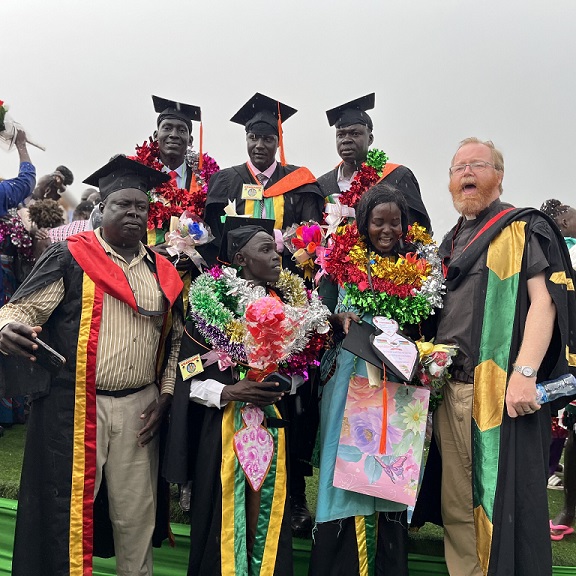
It has been a busy few months in the Catholic University of South Sudan, Rumbek and, as always, life is filled with activity. The economic crisis has deepened, due to the war in Sudan and runaway inflation here. Teachers, nurses, policemen, and civil servants have now not been paid since last October. How people manage to survive at all is one of the enduring mysteries. However, the South Sudanese are a courageous and resilient people and life has to go on.
Joyful Graduations
We are a new Catholic third level institution, so this year marked the graduations of our first class.
Our four Diploma in Business Administration and two Diploma in Accounting and Finance students joined us in our mother campus of Catholic University in Juba. In addition to our Diploma class, thirteen more Bachelor of Business Administration and Bachelor of Education students will graduate later this year.
For many ofthem, they will be the first member of their family to have earned a third level qualification. It is a source of tremendous excitement for all involved.
More importantly, after decades of deliberate under investment in the south before independence by the Sudanese government, these men and women are among the first groups of South Sudanese men and women to be graduate as local teachers and business people.
Our Bishop, Christian Carlassare, was the guest of honour on the day, and spoke with pride about the difference the graduates would make in creating a stronger,most sustainable future for South Sudan.
We have also established a group for these new alumni, so that they can continue to avail of the resources of the University as they begin their careers. Access to the internet here is among some of the most expensive globally due to our isolated location.
However, with the support of the MSC Mission Office Australia all of our computers are online, allowing them to search for employment, carry out research, and prepare CVs and applications.
For our current students, it has opened up an entirely new dimension, giving them access to textbooks, videos and online software that previously they could only have wished for.
CreativeCollaboration
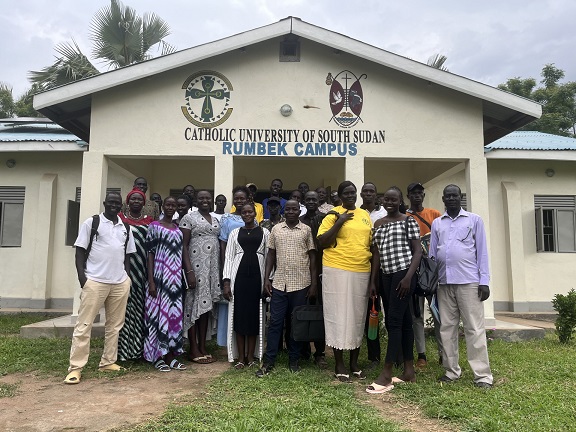
Resources here are few and we are always looking for innovative ways to support the professional development of our students. To this end we are collaborating closely with the Department of Human Sciences in the University of Salerno.Every three weeks, our Bachelor of Education students have a special input delivered online by a senior member of the faculty. They focus on some of the latest techniques and methodologies that will help develop their teaching practice.To date we have studied cognitive difficulties in youth, the design of classrooms to facilitate greater participation, and Universal Design for Learning.
All of our students speak English as a second, sometimes third language and the demands of academia can present a significant challenge. To tackle this issue we currently offer advanced English classes for our first and second years.
In an exciting new partnership with the Loreto Education Centre, we are also setting up small group classes for students who need extra support, along with classes in English for business professionals.
New Beginnings
While these last months have been a time of saying goodbye to some, we are getting ready to welcome others. Earlier this week we launched our admissions programme for new students. While our Bachelor of Business Administration remains popular, the two Bachelor of Education degrees are our main focus.
The development of well-trained local secondary school teachers is our central goal and we see it as an essential component in the continued development of South Sudan.
As part our admissions drive we will have students involved in talk shows on two different local radio stations, use social media advertising, put up posters around town, make announcements after Masses, distribute flyers, and most importantly encouraging our students to spread the news by word of mouth.
As ambassadors for the University, their recommendation is the most effective way of engaging new students and they have been enthusiastic in their mission.
As always we endeavour to encourage as many women as possible to study with the help of our partial scholarship programme and along with our measures to facilitate mothers with young children. We are also one of the few institutions nationally that have a wheelchair toilet and a fully accessible campus. Here, education is for everyone.
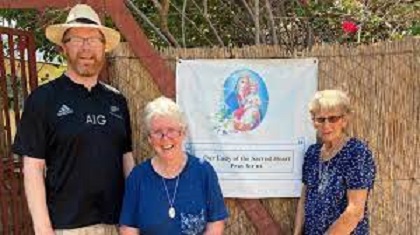
Memories of OLSH and MSC in Sudan
A rare event for MSC Australia, a 60th birthday celebration, Alo Lamere MSC.
A rare event for MSC Australia, a 60th birthday celebration, Alo Lamere MSC.
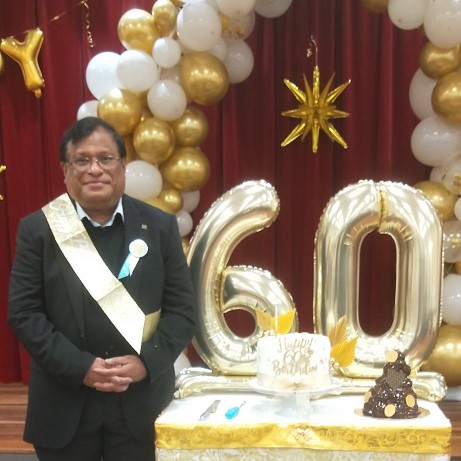
Last year the Province had three men turning 60. This year, just the one, Alo. And, sadly a few more years before the next one.
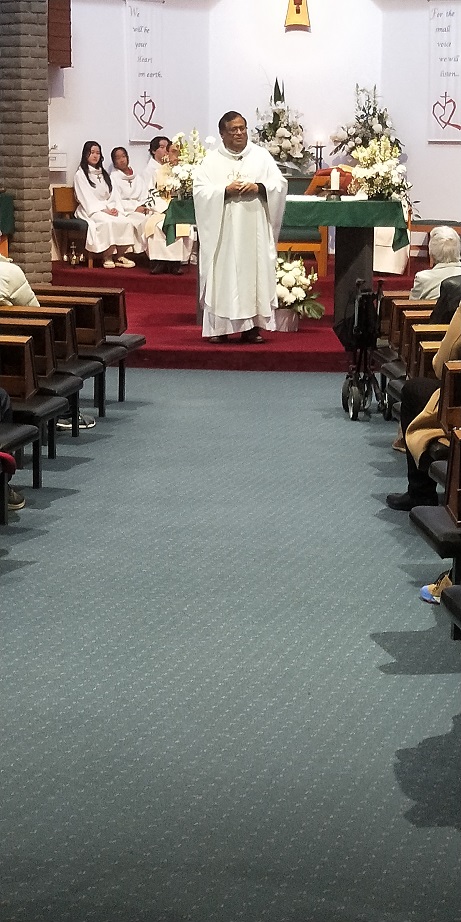
Alo is from Indonesia and worked there in formation. He then spent some years in Fiji. After coming to Australia, he participated in the Siloam, Spiritual Direction program at the Heart of Life Centre. He moved to Sydney as parish priest of Kensington, then parish priest of Blackburn and a term on the Provincial Council.
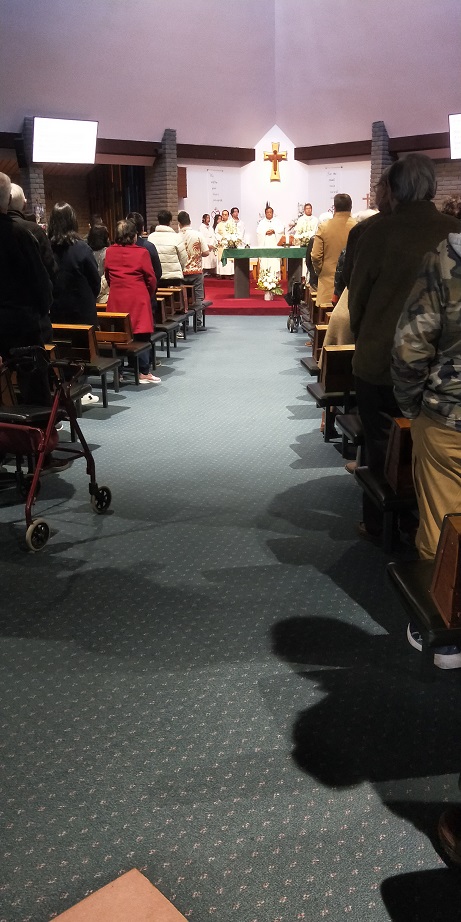
Saturday saw the parish celebration, a concelebrated Mass, MSC Melbourne community, parishioners, and many Indonesian friends and associates from Melbourne, and visitors from Fiji.
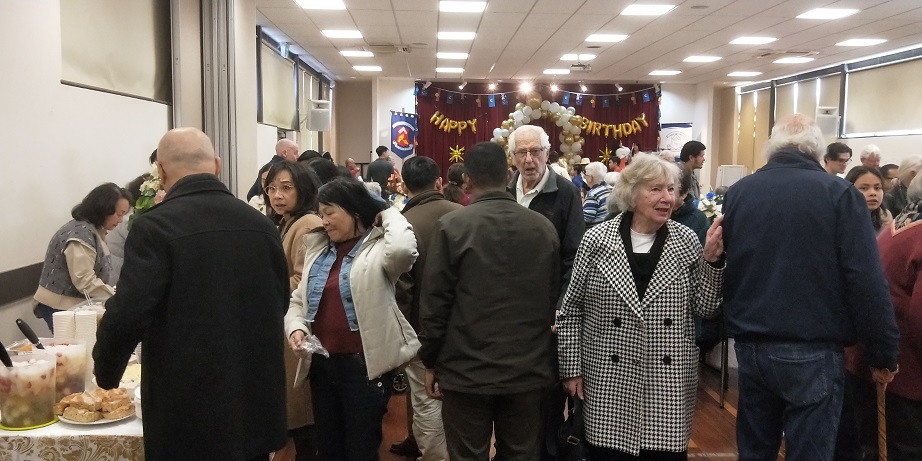
A packed church – and a packed school hall for a multicultural lunch. An enjoyable event for Alo and for us all.
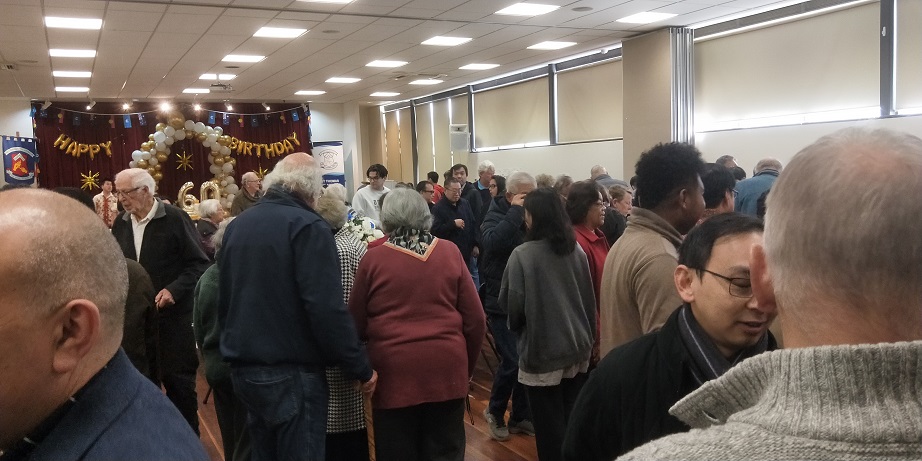
Pope Francis to PNG, Interview with Superior General, Abzalon Tovar MSC
Pope Francis to PNG, Interview with Superior General, Abzalon Tovar MSC
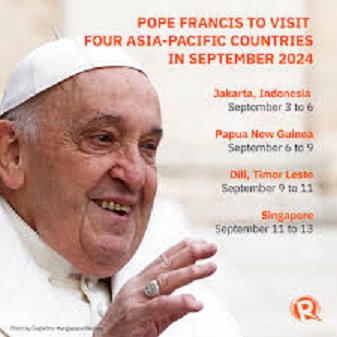
From Vatican News.
Pope will find ‘strong and multicultural’ Church in Papua New Guinea
As Pope Francis prepares to visit Papua New Guinea in September, the Superior General of the Missionaries of the Sacred Heart shares the current challenges facing the Christian community on the island nation, as well as the rise of local vocations.
By Renato Martinez
"Pope Francis will find a Church with a strong practice of faith, but in the style of Papua New Guinea. These are very ancient peoples with very ancient traditions. For them, the Pope's presence is a confirmation of their journey as a Church, as the people of God.”
Fr. Mario Abzalón Alvarado Tovar, Superior General of the Missionaries of the Sacred Heart (MSC), offered that assessment in an interview with Vatican News ahead of the Pope's Apostolic Journey to Asia and Oceania, which will include a stop in PNG on September 6-9.
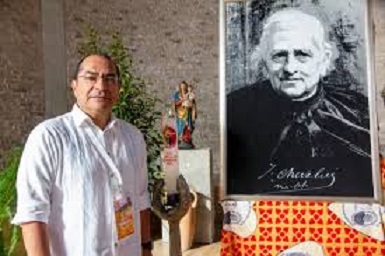
Father Alvarado says that the Missionaries of the Sacred Heart were sent to Papua New Guinea during the lifetime of their founder, Father Jules Chevalier. They received their missionary mandate in the late 1870s.
After a first attempt to establish themselves on the island in 1881, the missionaries celebrated the first Mass there on July 4, 1885, and established several missions on the southern coast, among the Roro and Mekeo tribes.
"In fact, since 1881, we have been in Papua New Guinea, marking the beginning of the modern era of the Church there," he said. "There had been minimal presences many centuries before, in very ancient times, but since 1881, we have been present continuously. We are, in a sense, the pioneers of the ecclesial growth in Papua New Guinea."
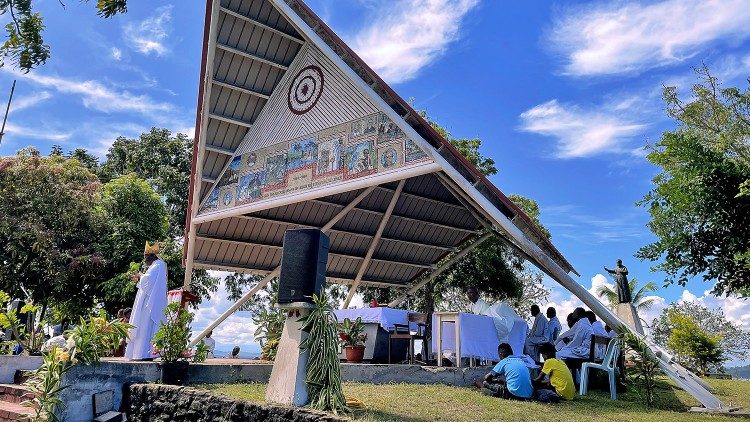
A chapel marking the spot where PNG's first Mass was celebrated
Papua New Guinea: 'The Land of the Unexpected'
The Guatemalan-born missionary describes Papua New Guinea as a multicultural world and the Church there as multicolored, multilingual, and multiethnic in every sense.
"There is a saying that describes Papua New Guinea," Father Alvarado said, "as 'the land of the unexpected'."
It is a country with a very ancient cultural tradition but with a way of life very different from the Western world.
"Pope Francis will find a Church with a strong practice of faith, but in the style of Papua New Guinea, of the islands of New Guinea, of the mainland, of the highlands, and of the coastal areas," he said. "These are very ancient peoples with very ancient traditions. We need to change the SIM card in our heads when we arrive in Papua New Guinea."
A multicultural Church
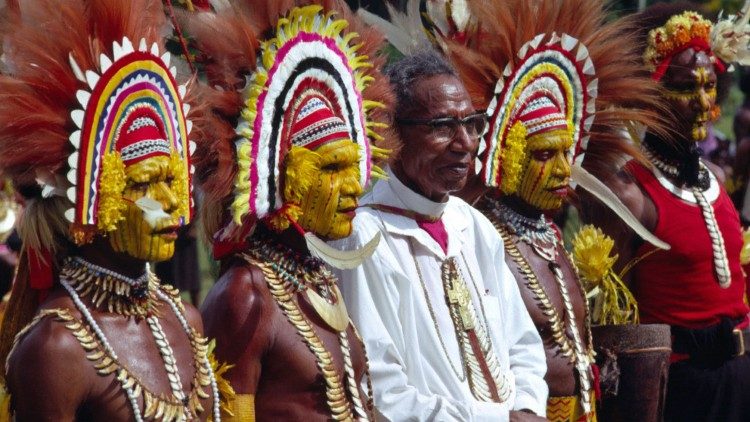
Referring to the ecclesial reality that Pope Francis will encounter in Papua New Guinea, Father Alvarado indicated that it is a Church with many rituals and dances, born from a rural world of jungle, rivers, fishing, and hunting.
"We missionaries have a province with more than 115 missionaries, all natives, and there are several congregations in the Church of Papua New Guinea. It is a very simple people in that sense, but very multicultural, multilingual, multicolored. It is difficult to describe in words, but there is a rhythm of time where what we say in the missions becomes evident: the people have the time, and we have the clocks. For them, time is always present. That is the great people of New Guinea."
Challenges in the first proclamation of the Gospel
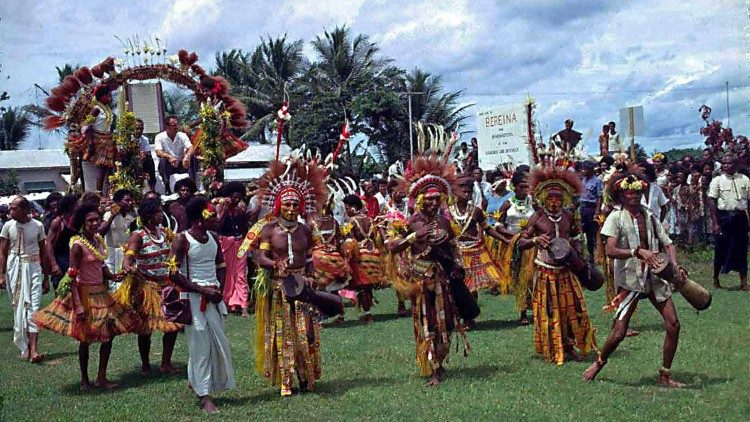
Among the challenges faced by missionaries during the initial proclamation of the Gospel was the culture of Papua, which was difficult to understand, including practices like cannibalism, health issues, the lack of infrastructure, and the cultural and religious world of the Papuans.
"Initially, there were practices of cannibalism, which have now practically disappeared," said Fr. Alvarado. "This was one of the initial challenges. Also, there were significant challenges in terms of health; it was a time of malaria and diseases because these were people with almost no contact with the West. The physical difficulty of having no roads, no infrastructure. The cultural world was also challenging; our missionaries initially did not fully understand their religious world and practices. However, the Gospel was present, the seeds of the Kingdom were always there, and Jesus was there, but with practices that initially made it difficult to reconcile things."
Current challenges for a Church on a journey
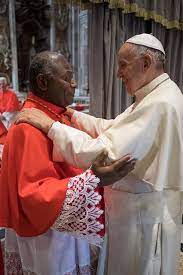
Visit to Port Moresby, Archbishop Cardinal John Ribat MSC
Today, Father Alvarado emphasized that there has been significant progress in Papua New Guinea, and there is a strong Church on the island. However, it faces challenges like those worldwide, such as climate change, mining with no respect for local communities, and systemic poverty.
"There is systemic poverty in Papua New Guinea, despite being a country with incredibly large natural resources. Many international companies are exploiting the country. Climate change is felt strongly, as it is a country heavily dependent on its natural resources. Deforestation and large-scale monocultures affect the people. Mining ‘without a human face’ is also a major issue. The Church is deeply affected and strives to stand with the most needy. Additionally, the tribal world is a challenge for foreigners and the Church alike—how to respect tribal or clan structures and evangelize from, within while respecting and trying to heal the anti-values that exist within all social and ecclesial structures. It's a significant challenge because these are very different worldviews."
Papua's first Blessed, and native vocations
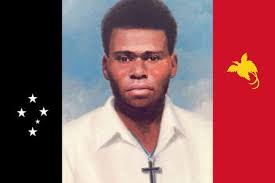
Father Alvarado explained that, as a result of the Gospel proclamation, various native vocations have emerged among the Papuans. They are even following the cause of canonization of the first blessed of Papua New Guinea, Peter ToRot, a lay Missionary of the Sacred Heart martyred in the 1940s.
"Pope Francis will find native bishops and priests," he said. "There are fewer and fewer foreigners who have done great work, but challenges remain. I'm sure Pope Francis will feel them deeply because they are very evident in Papua New Guinea. We have Peter ToRot, the first blessed of Papua New Guinea, a lay Missionary of the Sacred Heart martyred around 1945, who is very much followed by the people. He was beatified in 1995. We have formation houses with native religious vocations, religious, diocesan, and committed laypeople. It's not impossible, but it requires 'taking off our shoes' on such sacred ground as Papua New Guinea and changing our own frameworks as missionaries. We need to enter the culture and promote the Gospel from within. This is one of the Pope's most consistent propositions to missionaries."
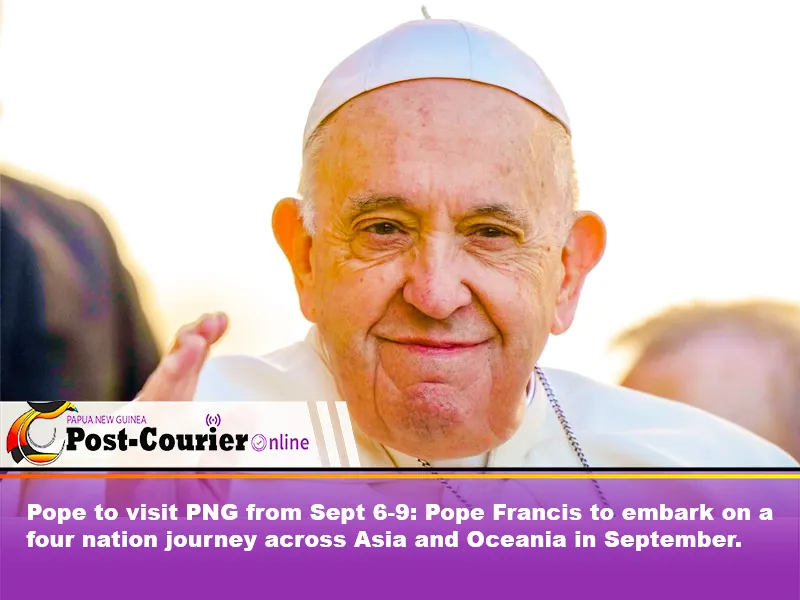
Prayers for the Pope's trip to Asia and Oceania
Finally, Father Alvarado invited everyone to be open to other realities like Papua New Guinea and to pray for Pope Francis' upcoming Apostolic Journey to Asia and Oceania.
"We must look to the other side of the world, where there are people who suffer, people who re happy, indigenous people with values from which we Latin Americans can learn and share," concluded the priest. "Let's be open to these other parts of Oceania, Asia, and Africa, where the people of God walk, just as in Latin America and Spain. Let's pray for this journey of the Pope. The people in Papua New Guinea, Indonesia, Timor, and Singapore are waiting with open hearts. For them, the presence of Pope Francis is a confirmation of their journey as a Church, as the people of God in Papua New Guinea, specifically. Let us continue to walk in synodality on both sides of the world.”
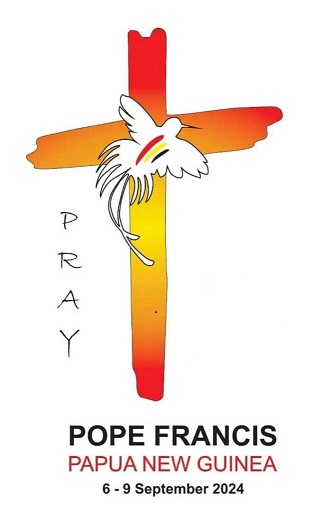
Photos from Facebook, US MSC and Laity of the Chevalier Family
Photos from Facebook, US MSC and Laity of the Chevalier Family
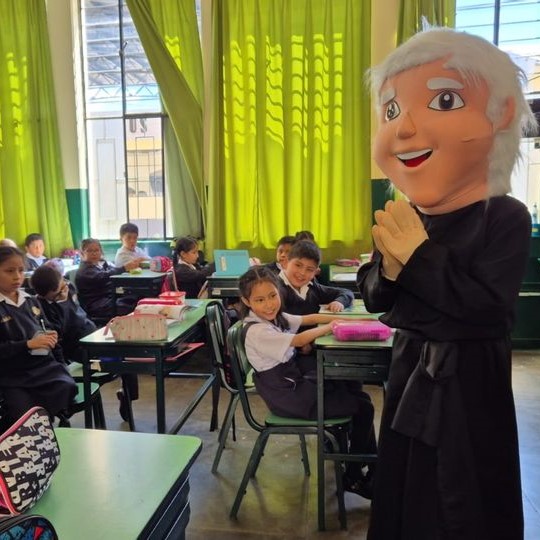
Actually, this one is from Peru, part of the Chevalier Bicentenary celebration
A Facebook account can be swamped with all kinds of advertising and so many sites that are unsolicited. But every so often there is a surprise photo with MSC connections.
From the US
Ray Diesbourg, former Provincial, Golden Jubilee of Ordination
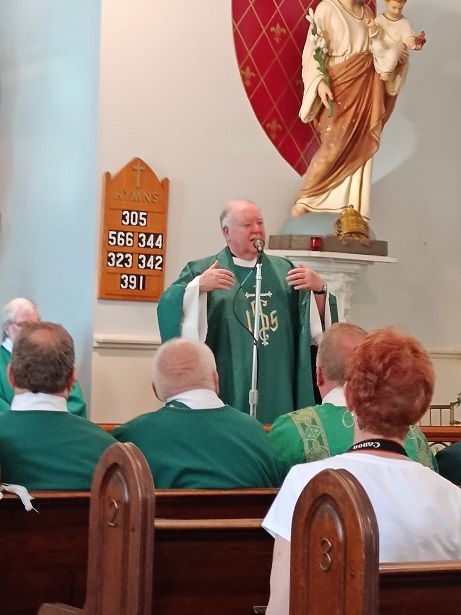
Jim Miller turning 74, Jim a longtime missionary in PNG, novice master in Ireland, a welcome and frequent visitor and sharer of our website posts
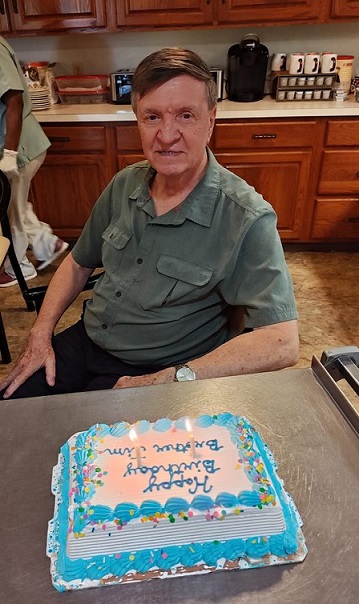
Laity of the Chevalier Family
Japan
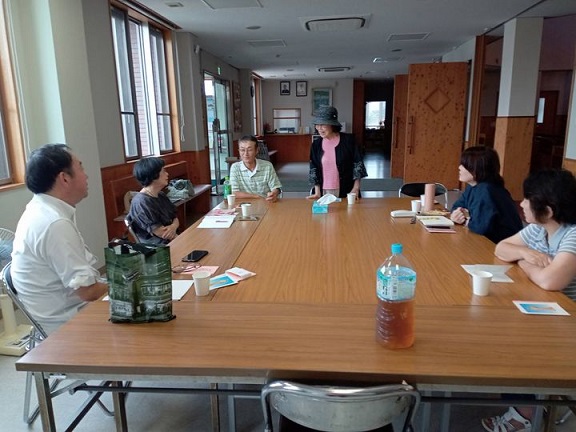
Today, we formally welcome laity in Japan - Yoko Hibi and Kazuko are pictured here with Fr Kenji from Australia. There have been laity in Japan for many years and we are delighted that a new group has emerged.
Australian meeting
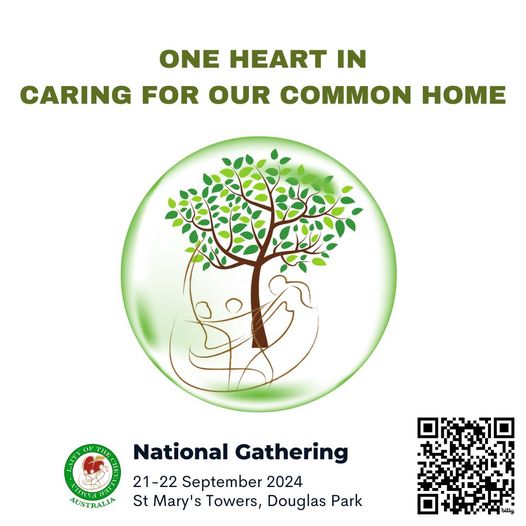
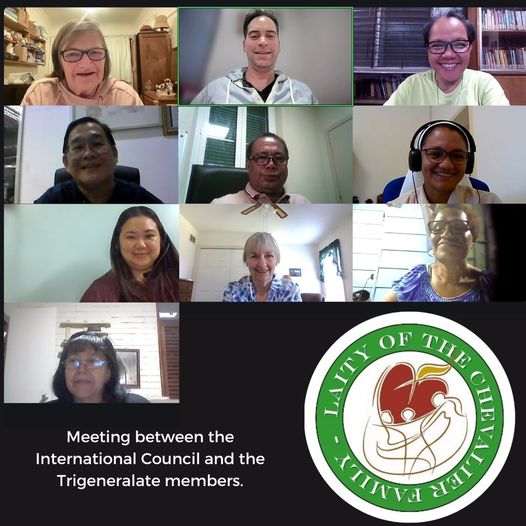
An outstanding OLSH, PNG Missionary story, 60 years. (1928-1990)
An outstanding OLSH, PNG Missionary story, 60 years. (1928-1990)
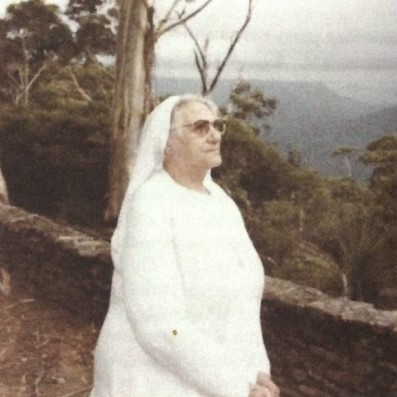
Sr. Simona gained much respect by learning several local languages and was gifted with many talents: teacher, nurse, singer, welfare officer, designer of clothes, organizer of primitive hospitals and elementary schools, and educational services. She also co-founded the small mountain village of Fane in the Central Province of Papua New Guinea, where she spent 26 years of her life. About her beloved village of Fane, she said, "This is where I belong, this is where I'll die." Due to her respectable age, the local chiefs and people saw her as a “grandmother of all” and came by foot from far through the jungle to get her opinion on family issues and tribe problems.
Prior to Sister Simona’s tragic passing, she spent her final months at the Kensington Convent here in Sydney.
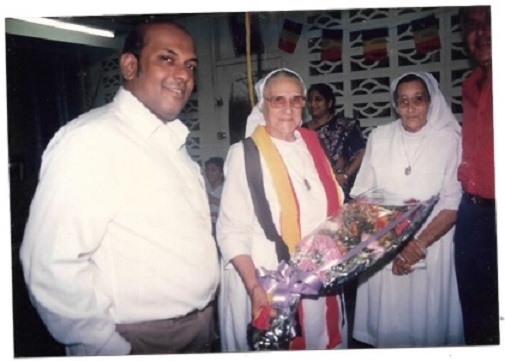
Sr. Simona, “Marmee,” will always be remembered as a unique woman with a large, warm heart who made a difference in the lives of many Papuans. May she rest in peace, and may her work not be forgotten. As she often said in the Fuyughe language: “Deov ur Uala” – it’s all up to God, God knows…
Sunflower/ Australia
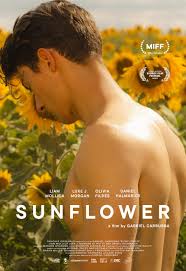
SUNFLOWER
Australia, 2023, 84 minutes, Colour.
Liam Mollica, Luke J.Morgan, Olivia Fildes, Daniel Halmarick, Elias Anton, Diana Ferreira, Sol Galofaro, Mia Barrett.
Directed by Gabriel Carrubba.
Sunflower opens with a young man standing in the vast field of sunflowers, bright blue sky. Then follows a schoolyard bashing sequence a group of young man hitting and kicking another. Later there will be flashbacks to these sequences.
Writer-director, Gabriel Carruba, has noted that his film is semi-autobiographical, set in the working-class suburbs of south-east Melbourne where he grew up. His film is billed as “coming-of-age” but the particular emphasis is on the 17-year-old Leo, his Italian family background, mother at home, father a truck driver and very demanding, a younger brother. Leo is grappling with his sexual orientation, resisting, tense.
Audiences have seen this kind of story before, in recent decades in a number of novels, films, and episodes in television series like Heartbreak High. Which makes one ask while watching the film, who is the intended audience? In an interview, Gabriel Carrubba has said that he didn’t have an audience in mind, just wanted to tell the story. He appreciates that teenagers undergoing the same questions, identity-seeking, will identify with Leo. It is a film which parents could watch and find the situation with their sons, something that they can consider, find challenging. But, many high school homophobic-environment boys not want to watch it.
Gabriel Carrubba has said that his use of sunflowers is an image, the flower ugly when it is growing but, in full bloom, bright, full of colour. And the sunflower imagery in painting and in fields of flowers recurs during the film, Leo surveying the sunlit flowers.
Liam Mollica is effective as Leo, though he and the other high schoolers look rather older. Leo tries to be one of the boys, mates with the rowdy Boof (Luke J.Morgan), more than an eye on the girls at school, but having to confront the reality of sexual encounters and relationships. The film focuses on Leo and his attempts to be as ordinary as he can be, and the rumours and gossip around the school, then the scene we have already noted of the bashing, his being ostracised, his concern about his parents, his growing anger and pushing people away.
It is his sympathetic brother who is aware of the situation and suggests some contact with another boy at the school, Tom, whom audiences have realised is also gay. The friendship grows, Leo begins to accept himself, and, the film ends with hope, Leo’s letter to his father and mother and their response.
This is a small film, the director’s visual coming to terms with his own life, the possibility for next steps in his life and in his career.
- The title, the visuals, the fields, the flowers, the art work? The symbol of the flower ugly in development, blooming? The contrast with the gay bashing at the opening of the film?
- Australian film, the Melbourne sitting, the suburbs, homes, schools, streets? Authentic atmosphere? The musical score?
- The work of the director, semi-autobiographical? Intensity of feeling? Universal themes?
- Coming-of-age stories, coming-of-age and gay sexual orientation?
- Leo’s story, his place in the family, his younger brother and friendship and support, his truck driver father, severe in manner, demanding, timetables, supportive mother?
- Leo, 17, the years at school, one of the boys, sport, locker rooms, bravado and talk, sexual, eyeing the girls? Boof and his friendship, coming to the window, into the house? Leo and masturbation, imagination, there are online contact, the visuals, taking off his shirt? His embarrassment? Shutting the computer? The masturbation sequence, sharing with Boof?
- Leo and the encounters with Monique, talking,, together, the kissing, her wanting the sexual encounter, his inability, the aftermath? His embarrassment, his anger?
- The gossip in the school, his reputation, the bashing? The reaction of the boys, his injuries, at home, seclusion? At school? The locker room, everybody walking out?
- Tom, with the boys, yet alone, audience awareness of his personality and orientation? Leo’s brother, arranging the meeting, the agreement, skateboarding, going out together, the lake, sharing, comfortable with each other? The growing relationship? The discussions?
- Monique and her reaction, supportive? His embarrassment?
- The other boys, with the girls, the drinking episode, Leo lying out in the field, lying with Boof, his father rebuking him? Will and his embarrassment? About Leo?
- Leo, isolation, being solitary, the decision to write the letter, giving it to his brother?
- The return, the parents reading the letter, sadness, embracing him on his return?
- The prospects for his future?
Quiet Place: Day One, A
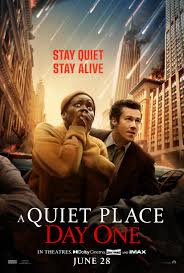
A QUIET PLACE: DAY ONE
US, 2024, 100 minutes, Colour.
Lupita Nyong'o, Joseph Quinn, Alex Wolff, Djimon Hounsou.
Directed by Michael Sarnoski.
There is a dire meaning in the title, A Quiet Place. Monstrous creatures had invaded earth, lacking the power of site but hypersensitive to sound. The original film and its sequel had menaced humans desperate to be silent, avoiding any kind of sound to alert the roaming predators.
Which means that audiences for this contribution to the franchise, a prequel, go into the film knowing what the key issue is. Silence.
The film starts routinely enough, a hyperactive poet, Samira (Lupita Nyong’o), ill, in care, going to group meetings and being defiant, invited to go in to New York City to see a marionette show (a quite vivid interlude, in fact). She bargains with her nurse that they have to have a pizza in Harlem. This doesn’t quite happen.
When the creatures come, they wreak enormous devastation on the city, sometimes graphically filmed. The populace, taken unawares, easily become victims, and the mayhem in the city, crashed and crushed vehicles, buildings and ruins, are caught in an atmosphere of terror.
The filmmakers have decided to focus on the central character, her survival, her trying to get to her apartment, avoiding all sounds. Suddenly, emerging from the water is a well-dressed, suit and tie, Englishman, Eric (Joseph Quinn). He is more than shell-shocked, begins to follow for security, her urging him to get to a wharf because it emerges that the creatures cannot endure water. We do see barges on the New York Rivers full of refugees.
This part of the film has its moments of excitement, Eric venturing out to a pharmacy to get medication for the poet, increased menaces from the creatures – which, is probably why most of the audiences have paid for their tickets to see it.
The ending is not quite what we might have expected, moments of pathos and sadness, moments of rescue, moments of hope for survival despite everything.
If this film is popular, will there be Day Two?
- The popularity of the first two films? prequel and explanations, origins, the audience presupposing details, especially about creatures, about silence in danger, from the original films?
- The New York settings, the opening in the care home, the trip into the city, the marionette theatre, the audience, going to get pizza, and the attack? The vistas of the city, the destruction of the city, streets, cars, buildings? The musical score?
- The visuals of the creatures, audiences appreciating them from the previous films? Monstrous, the detail, the attacks, stalking people? Noise and sounds and the attacks?
- Sam as the focus, her physical health, in care, with Reuben, the groups, that she was a writer, her aggressive poem, persuaded to go into the city, wanting pizza in Harlem? Reuben, nurse, friendship, with Sam?
- The marionette theatre, the skill of the puppeteer, the puppets, the balloon, flying? Audience response?
- The sudden attack, the destruction, the creatures? The silence? Sam and Reuben, his death?
- The importance of the cat, always with Sam, the trip, the theatre, throughout all the dangers, away, coming back? Companionship? A kind of guardian angel figure? Audience response to the cat – and more than nine lives?
- Sam, the experience, bewilderment, determination, seeing so many people taken, in the streets, the helicopters flying overhead, the message for evacuation, to take to the water? Her wanting to go to her apartment?
- Eric, emerging from the water, suit and tie, surviving, stunned, the encounters with Sam, silence, communication, her writing notes, his following her, the dangers, going to Harlem, her apartment, her book, sleep? Her urging him to go away? His personality, quiet, rising to occasions? Seeing the people on the boats in the middle of the river, being saved?
- The refuge in the Church, peace, sanctuary and reflection?
- The continued trek, Eric and his going to the pharmacy, getting the medical patches for Sam? Dangers, his being threatened, the cat?
- Sam and her weakness, the daylight, going towards the boat, seeing the kindly man from the marionette theatre on the boat?
- Sam, urging Eric to go, with the cat, her staying behind in weakening, Eric and the water, evading the creatures, onto the boat, reading Sam’s letter and the voice-over?
Mr Blake at Your Service/ Completement Crame
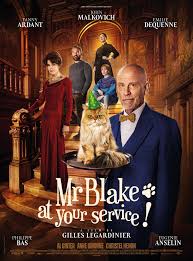
MR BLAKE, AT YOUR SERVICE/ COMPLETEMENT CRAME
France, 2023, 99 minutes, Colour.
John Malkovich, Fanny Ardant, Emilie Dequenne, Philippe Bas, Eugenie Anselin.
Directed by Gilles Gardinier.
This is a surprisingly nice French film. The French title is somewhat obscure. The English title much more indicative. And in some areas, there was a new English-language title, Well Done!
And the question, of course, who is Mr Blake?
In fact, we find at the opening of the film, that he is one of Britain’s leading business entrepreneurs, about to be given a significant honour at a crowded banquet, but not turning up, not feeling up to the occasion, really wanting to retire and disappear. And, he has been grieving for his deceased wife. So far, so intriguing.
But, for many filmgoers over the decades, the actor playing Mr Blake will be something of a surprise. At the end of the 90s, there was an interesting fantasy film exploring identity, actors and their characters, Being John Malkovich (and the actor himself contributing to the issues by appearing in the film). Mr Blake is played by John Malkovich.
Looking back over the career of John Malkovich, light comic touch is not a quality that immediately comes to mind. He can be extremely enigmatic. (A recent example would be his character in the television series, Ripley, with Andrew Scott.), He has a distinctive voice. It can sound menacing. And he has often been a sinister villain.
And, while he still looks the same here, and sounds the same, he is challenged to be a very nice person – and, surprisingly, he succeeds very well.
The story is somewhat tongue in cheek. Mr Blake decides to retreat from the world, return to the French château where he first met his wife, hoping to settle there quietly. The château, visually magnificent interiors and lavish grounds, is managed by a widow, played by Fanny Ardant (who has also played some serious, sometimes sinister, roles in her past but who is really charming here). Mr Blake thinks that rooms are available and would like to stay. This turns out to be a great misapprehension!
The housekeeper, a Odile, very strong minded and determined, has placed an ad for a Butler and makes the assumption… Mr Blake is given a pokey room, given the time of trial to see whether he is suitable as a Butler – and his big advantage is that he is English and therefore the possibility of being a proper Butler personified.
So, the enjoyment of the film is seeing Mr Blake becoming the Butler and how he handles the expected routines. After a rifle being pulled on him, he befriends Magnier, one of the workers on the estate (who actually is very shy but is attracted to Odile). And, there is the maid who comes in regularly and is now pregnant, the father of the baby vanished. Mr Blake has to be something of a Fairy Godfather, so to speak, listening to all the characters, providing opportunities for them to develop and flourish, trying his best to help the owner of the château who is trying to manage the finances, being forced to sell the château.
And, at one stage, who should turn up but his close friend from England and his wife, enjoying ribbing Mr Blake about his new status and his serving drinks…
It is amazing how John Malkovich embodies Mr Blake, being kind, helping, some comic moments (the wig and lipstick so that Magnier might polish his table manners and learn how to speak to Odile), the robbing of a hoity-toity so-called friend of the owner of the ring, the complicated way to help the owner and her resistance.
And, nice romantic touches, the visit to the Cemetery, the sad truth about the owner’s marriage.
For audiences, probably older rather than younger, who would like a very pleasing film night out, Mr Blake is definitely at your service.
- The title, French and English? The focus on Mr Blake?
- The settings, London, the banquet, flat? Transition to France, the countryside, the château, interiors, the grounds? The musical score?
- John Malkovich is casting as Mr Blake? Against type? His success?
- The introduction to Mr Blake, the banquet, the crowd, announcements, the award? The phone call, his not wanting to go? Richard and his reaction?
- Mr Blake, leaving London, going to France, arrival of the château, his expectations of a room, memories of his first meeting his wife, meeting Odile, the reaction, her ad for a butler, his shock, the pokey room? On trial? His agreeing to the situation? The perfect English butler?
- Nathalie, her situation, the death of her husband, financial, the plan to rent rooms, renovations and expenses, the pressure to sell the château? Her personality, her response to Mr Blake, as butler, busy with her expenses, talking to the mannequin of her husband, the later revelation of the truth about his mistress, the is to in the grounds but no words? Her manner, towards Magnier, compassion towards Manon and the pregnancy, allowing her the room and the château? Working with the Odile, housekeeper, maid? Not wanting Mr Blake to interfere, underestimating him?
- Mr Blake adjusting to the situation, the dress, the routines of the butler, service, trays? A Odile and her demands? The mobile phone, Magnier and his rifle, they’re talking, friendship? His attraction to a Odile, the loner, awkward? Helping with the video of the gate? Other jobs? Mr Blake and the wig and lipstick, the rehearsal for good manners, talking to women, the effect on Magnier, Mr Blake softening Odile, her response? Manon, the pregnancy, the father going off, sleeping out, her mother rejecting her, Mr Blake getting the room, Nathalie and her permission? The household? Mr Blake having to be a kind of Fairy Godfather?
- The obnoxious visitor, the chat, disdain towards the butler, Nathalie selling her ring, the decision for the robbery, masked, frightening the woman, giving it up, the restoration?
- The visit of Richard and his wife, the pretence, enjoying having Mr Blake serving drinks as the butler? The later return, the negotiations for the finance?
- Mr Blake ending the tenure, staying on, the personal relationships, the relationship with Nathalie?
The revelation of who he was? Support – an
Silence, Un/ A Silence

UN SILENCE/ A SILENCE
Belgium/France/Luxembourg, 2023, 99 minutes, Colour.
Daniel Auteuil, Emmanuelle Devos, Mathieu Galoux, Jeanne Cherhal.
Directed by Joachim Lafosse.
By the time we watch the final credits of A Silence, we realise that there are many silences that we have been made aware of.
This is a serious film with serious themes. There is an immediate intimation as the camera focuses at great length (and this will recur throughout the film) in close-up of the face of the key character, Astrid (fine performance from veteran actress Emmanuelle Devos), travelling in a car to a police station. There are some suggestions as to what is going to develop, suspense and questioning on the part of the audience.
Astrid’s husband, François (also a fine performance from veteran actor Daniel Auteuil) is a celebrated lawyer, prosecuting a sexual predator who has victimised two young girls. François is passionate about his cause, giving interviews, an eager press often camped out at his house. And the house is quite a mansion, comfortable, large swimming pool. The couple has a daughter who is married with a child. Their 17 year old adopted son, Raphael, is at school, living at home.
The film is based on actual events and actual characters. In Belgium, 1995, a serial predator, Marc Dutroux, is revealed as acting his victims and imprisoning them, abusing them. A Silence is based on the lawyer who defended him and Astrid on his wife.
There is great complexity in the development of events, a situation of abuse in the past, attempted therapy and the questions of how therapy is long-lasting or not and one of the particular silences, that of those who are aware of the abuse and did not speak up at the time.
Another aspect, is that of the silence of someone who has been abused, unable and unwilling to reveal the truth at the time, silence for decades, then, in the current atmosphere of revelations and prosecutions, speaking out and searching for justice.
And, while the theme is of sexual abuse, there is also the 21st-century reality of on-line pornography, accessibility to the young on their computers, international markets on the black web and networks of photos/video of abused children.
Which means that this is a film of significant contemporary issues, the reality of the abusers and their lives and concealment, issue of those made aware of the issues but who do not understand them, or did not appreciate their severity in the past, and the consequences as time has gone on.
The treatment is sombre, the photography often dark, the great use of extreme face close-ups to focus audience attention on each of the characters.
For audiences who belong to churches and religious denominations, who have experienced the revelations of church leaders and abuse, cover-ups and/or ignorance and lack of awareness, this film has no ecclesiastical connections which means that the audience can look at these situations much more objectively and assess the gravity, and appreciate the pain of survivors.
- Based on actual characters and events? The case in Belgium, the prosecutor against the serial killer, Marc Dutroux, the investigation, child pornography on the Internet, trial and sentence, and the wife sentenced for negligence?
- The fictionalising of the case, the parallels, the lawyer, his family, his prosecution, the expose an investigation, the establishing of the family, the past sexual abuse, addiction, therapy, not effective? The family, the daughter and her marriage, the son at school and his problems, the abused uncle?
- The city setting, offices, police precincts, the mansion, the interiors, the grounds, the swimming pool? School? The streets? The paparazzi? The final courts? The musical score?
- The style of the film, comparatively low key, intense and interior, the focus on Astrid, the many close-ups, the face, profiles, in the car, in the car mirror? Audiences identifying with her, sympathy, but learning more about the past, her relationship with her husband, her brother, the abuse, keeping silent, hoping her husband had benefited by therapy? Her love for her daughter, the tension because of the case and the daughter urging the uncle to prosecute? Her love for her son, his problems, expulsion from school, supporting him? Audience sympathy for her character, her experiences with the secret, the prospect of prosecution, relationship with her daughter and grandchild, urged to reveal the truth to her son, her telling him, the tensions with her husband, looking at his computer, the police, the search of the house, moving with her son to the hotel, his leaving?
- The screenplay, indicating the basic elements and the police interview with Astrid, then the audiences further discovery, emotional complexities, moral issues?
- François, his reputation, the prosecution of the sexual predator, sympathy for the abused daughters, contact with the parents? Press interviews, television, his taking a righteous stand against the abuser? At home, relationship with his family? The gradual revelation of his personal life, going to his computer, the audience just hearing sounds rather than visuals of the pornography? Relationship with his son, watching the tennis, tensions? The paparazzi and his forbidding photos, their waiting outside his home? The arrival of the police, the fact that they had been tracking the international pornographer, six months investigation François, the sequence where they were operating surveillance of his home? His realisation that he would be exposed, going out to the media, explaining that he was withdrawing from the case, politicising it, the media questions, his staying at home?
- Raphael, his age, relationship with his father, his mother doting on him? Money for spending? His friends, missing from school for two weeks, the interview, the expulsion? The truth about his father? His father’s computer? His own computer? His growing anger, going to the exam, the sympathy of the teacher, presumption of father’s innocence? The search of the house, his computer? Going to the hotel, with his mother, leaving?
- Raphael and his going to his sister, growing anger, drinking, confronting his father, the talking, the knife, the visuals of his father having been stabbed, the police arriving, rescuing François, taking Raphael?
- The interrogations, Astrid and her giving information, but withholding the story of the past? Looking at her husband’s computer? François and his denials, looking at the websites for his case? The revelation about the peddler of child images, over 7000 hits, his addiction? The interrogation of Raphael, his story about looking at the computer, even when he was eight, looking at his father’s computer, the contacts on his own? His attack on his father?
- The court sequence, the crowds, the court judgement, referral and the leniency, the condemnation of François, and the effect on Astrid?
